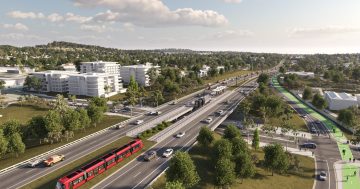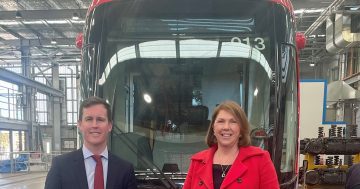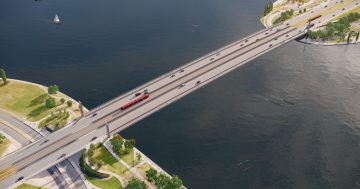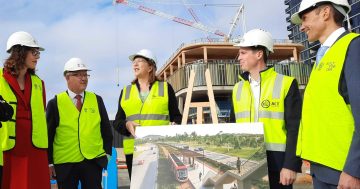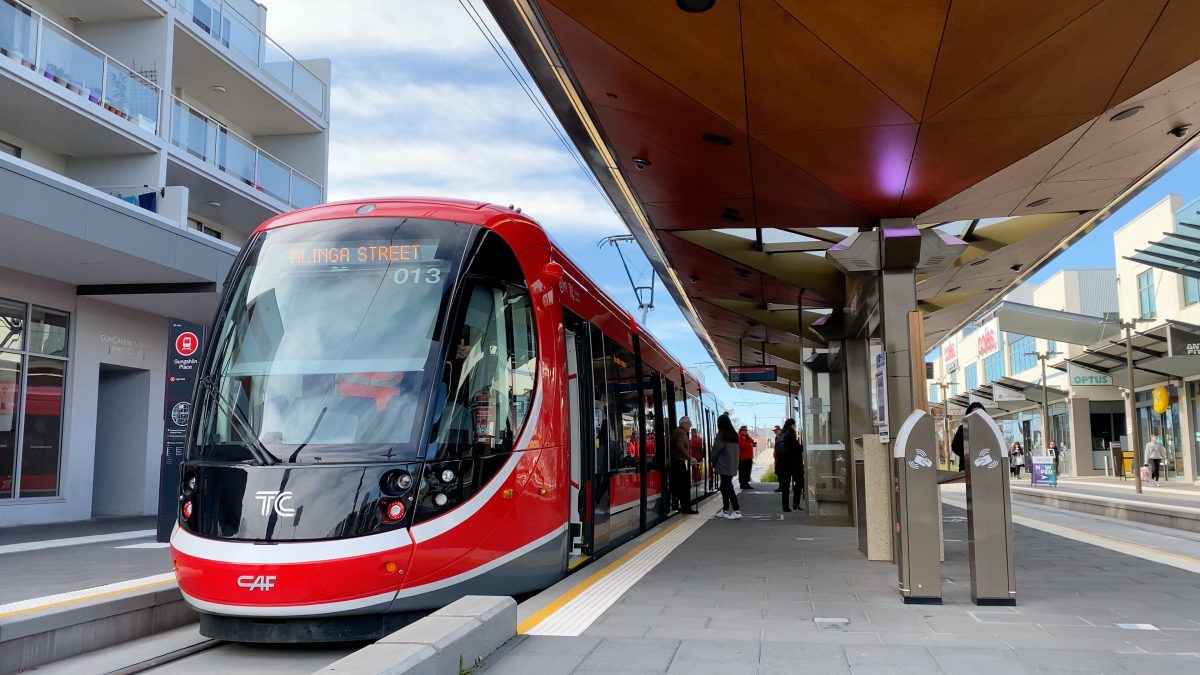
The guessing game over how much it will cost to get light rail to Woden continues. Photo: Region.
The Public Transport Association of Canberra (PTCBR) has questioned claims made by the Canberra Liberals that light rail stage 2 will cost more than $3 billion following the release of unredacted documents.
An Ernst & Young economic appraisal report from 2019 was released under Freedom of Information laws in March of this year; however, the costs were redacted.
This was raised with the ACT Ombudsman by the applicant – whose identity is unknown – with the authority deciding the documents could be released with the costs visible.
The report suggested, in 2019 terms, that the building cost for light rail from City to Woden would be around $960 million.
Putting that number into the Reserve Bank Australia’s inflation calculator suggests that it would be $1.09 billion for the 2022/23 financial year (compared to the 2019/2020 financial year, calculated with an average annual inflation rate of 4.3 per cent).
PTCBR chair Ryan Hemsley said that while costs would have increased since then, this didn’t paint a picture of a “$3 billion disaster”.
“There’s been a lot of speculation around how much it will cost to bring light rail across the lake,” he said.
“Despite what some politicians may want you to believe, these figures show that stage 2B to Woden doesn’t have to cost a fortune.”
Operating and maintenance costs for the City to Woden line were estimated to amount to $190 million.
Modelling around possible benefits of extending light rail to Woden showed it could deliver total economic benefits of $1.217 billion (based on 2019 conditions).
This benefit mainly came from increased land value and better land use, particularly around the Acton Waterfront, North Curtin, and expected increased densification in Woden.
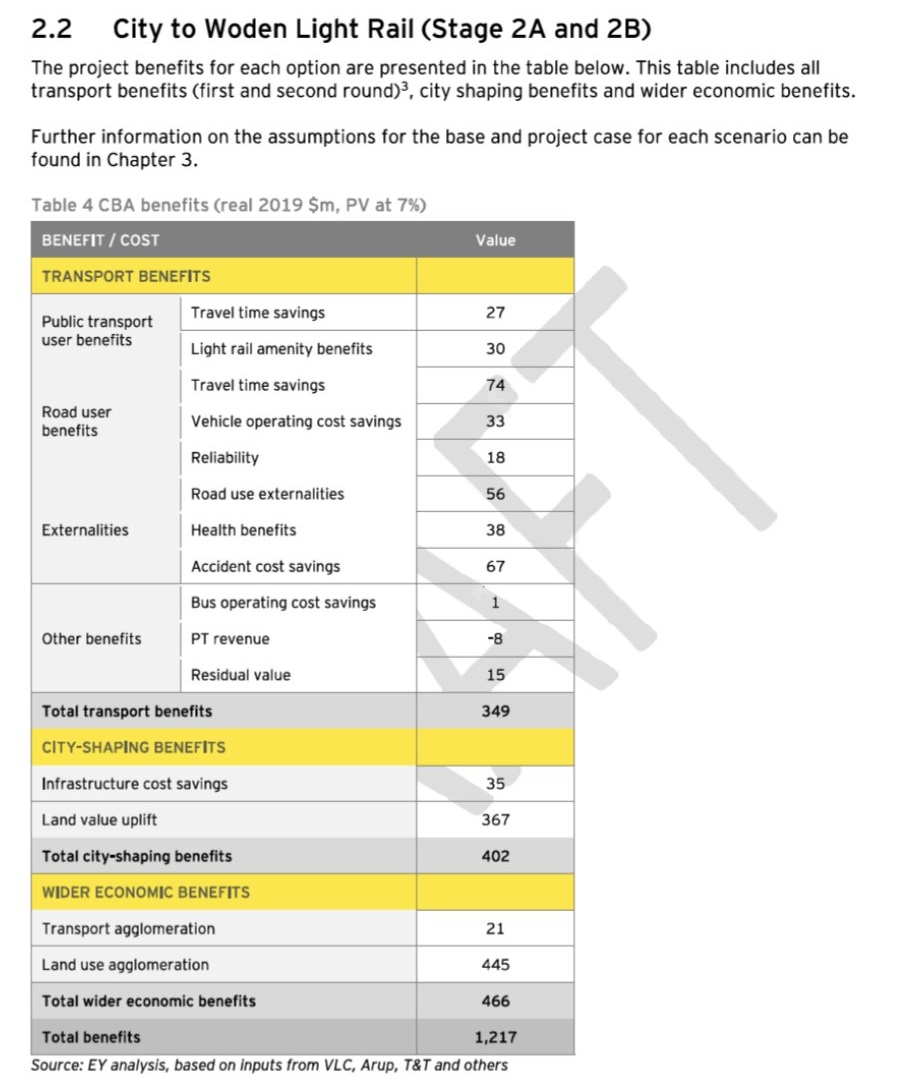
Predicted economic benefits from light rail stages 2A and 2B. Photo: FOI.
“This means, for every $1 of total expenditure, City to Woden Light Rail is expected to return $1.04 worth of benefits to the ACT economy,” the EY 2019 report stated.
“It is expected that the project delivers marginally greater benefits [than] its costs.”
Mr Hemsley said the costs of the project are now greater, and the economic benefits will take longer to realise, highlighting why the community could accept no more delays.
“We can’t afford to spend the next five years arguing about how to get light rail through the Parliamentary Zone,” he said.
“The ACT Government needs to pick a route and get on with the job of delivering light rail to Woden.”
But the Canberra Liberals are standing firm on its prediction the project will cost $3 billion.
Shadow Transport Minister Mark Parton said the 2019 economic appraisal was “full of holes” when it was written and was now a “complete fantasy”.
“The Canberra Liberals absolutely stand by our 2022 estimate of cost and delivery date for this disastrous project at $3 billion and 2034,” he said.
“History will show that the Liberals estimates are extremely conservative.”
Mr Parton again pushed the ACT Government to release more information, such as the business case, for the project to justify why it should go ahead.
“We all know that the entire project will be at least three times this estimate and, additionally, the creative accounting used to estimate benefits reads like a stand-up comedy script,” he said.
Mr Parton pointed to both the Auditor-General’s report into the stage 2A business case – which found the government didn’t pay enough attention to the economic analysis of that section of light rail – as proof the government shouldn’t be taken at its word.
The report also questioned whether the project’s economic benefits had been overstated.
“As a reference point, I would draw your attention to [a recent] tender for four new trams, 150 metres of new track at the depot, a car park and a battery storage building for $199 million,” Mr Parton said.
“If that’s the cost for such a small piece of the tram puzzle, it’s ludicrous to believe that the entire project will come in under $3 billion.
“This 2019 economic appraisal was way off the mark then and it’s completely irrelevant in 2023 and beyond.”
The government has previously committed to releasing the stage 2B business case once procurement has been finalised and contracts signed.
A redacted version of the stage 2A City to Commonwealth Park business case has already been released.













